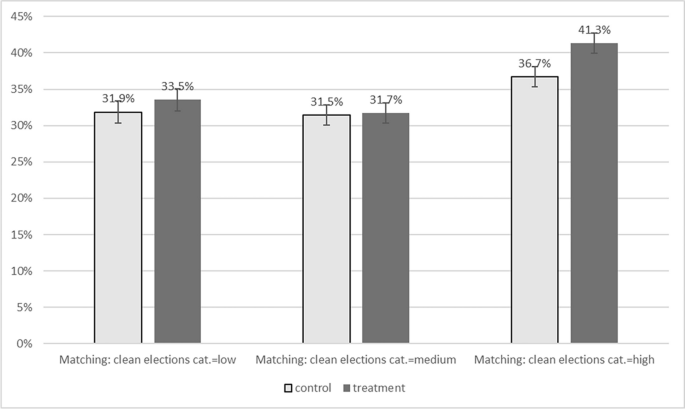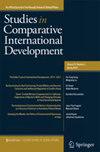选举与腐败:激励偷窃还是激励投资?
IF 1.2
2区 社会学
Q3 DEVELOPMENT STUDIES
Studies in Comparative International Development
Pub Date : 2023-11-03
DOI:10.1007/s12116-023-09412-0
引用次数: 0
摘要
目前,世界上大多数政治制度都定期举行不同质量和类型的多党选举。然而,我们对选举对腐败的影响知之甚少,特别是在执行发展援助的高度自由裁量权的公共采购合同中。为了解决文献中的这一空白,我们采用无与伦比的比较和匹配估计来分析全球政府合同数据集,该数据集提供了腐败的客观代理:竞争市场中的单一招标发生率。我们发现,在所有条件相同的情况下,选举前的腐败风险增加:单次投标高出1.3-6.1%。我们证明,在以下条件下,选举的腐败增强效应更强:(i)高选举竞争力,(ii)中等程度的政党制度化,以及(iii)“局部集体商品”的裙带关系。本文章由计算机程序翻译,如有差异,请以英文原文为准。

Elections and Corruption: Incentives to Steal or Incentives to Invest?
Abstract By now, most political systems around the world hold regular multiparty elections of different quality and type. However, we know relatively little about the effect of elections on corruption, especially in high-discretion, public procurement contracts implementing development aid. To address this gap in the literature, we employ unmatched comparisons and matching estimators to analyze a global government contracting dataset that provides an objective proxy for corruption: the incidence of single bidding in competitive markets. We find that, all things being equal, corruption risks increase in the immediate pre-election period: single bidding is higher by 1.3–6.1% points. We demonstrate that the corruption-enhancing effect of elections is stronger under conditions of (i) high electoral competitiveness, (ii) medium-level party institutionalization, and (iii) “localized collective goods” clientelism.
求助全文
通过发布文献求助,成功后即可免费获取论文全文。
去求助
来源期刊
CiteScore
4.40
自引率
3.70%
发文量
24
期刊介绍:
Studies in Comparative International Development (SCID) is an interdisciplinary journal that addresses issues concerning political, social, economic, and environmental change in local, national, and international contexts. Among its major emphasis are political and state institutions; the effects of a changing international economy; political-economic models of growth and distribution; and the transformation of social structure and culture.The journal has a tradition of presenting critical and innovative analytical perspectives that challenge prevailing orthodoxies. It publishes original research articles on the developing world and is open to all theoretical and methodical approaches.

 求助内容:
求助内容: 应助结果提醒方式:
应助结果提醒方式:


